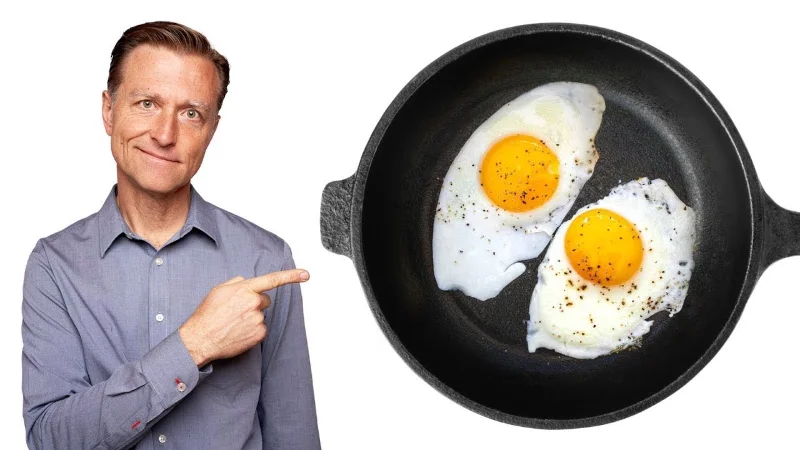2. Eating cholesterol affects different people, well, differently.

Egg yolks do contain significant cholesterol, with one large egg providing about 186 mg. However, before eliminating eggs from your diet, consider the USDA's nutritional guidelines. Research indicates approximately 70% of people experience little to no cholesterol impact from eggs. Experts clarify that high-cholesterol foods don't automatically raise blood cholesterol. Surprisingly, for 30% of individuals, eggs might actually help lower low-density lipoprotein (LDL) cholesterol levels. The connection between dietary cholesterol and blood cholesterol proves more complex than earlier believed. Contemporary studies reveal the body's response to dietary cholesterol varies significantly between individuals, influenced by genetics, overall diet, lifestyle, and existing health conditions. For most healthy people, the liver regulates cholesterol production according to dietary intake, maintaining stable blood cholesterol levels. This understanding has prompted major dietary recommendation changes over the past decade, with numerous health organizations removing previous egg consumption restrictions. As with all foods, moderation remains crucial. Dr. Hong recommends focusing on complete dietary patterns rather than isolating specific nutrients or foods. Those concerned about cholesterol should consider regular blood lipid testing and consult healthcare professionals for personalized guidance.
Advertisement
Recommended Reading: Firefighters Save a Litter of ‘Puppies’ Before Realizing Their Mistake
You are viewing page 3 of this article. Please continue to page 4
























Ties principles to operations seamlessly.
Leaves bias inspection space.
Invitations to iterate are clear.
Gentle reminder we need.
Provides a resilient baseline lens.